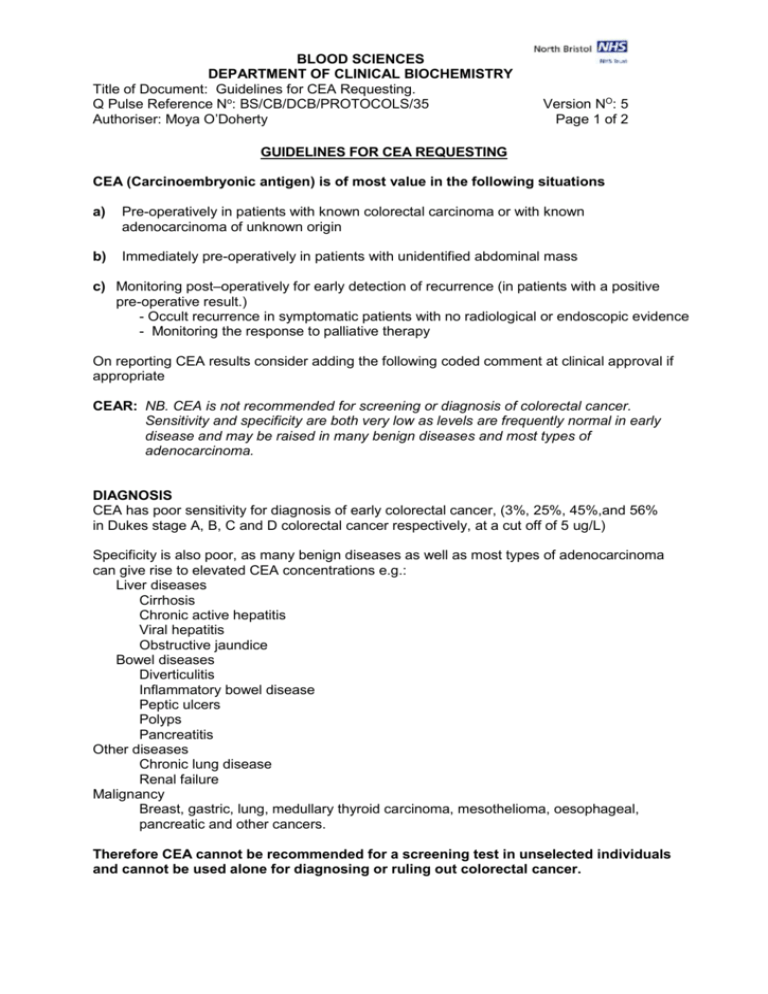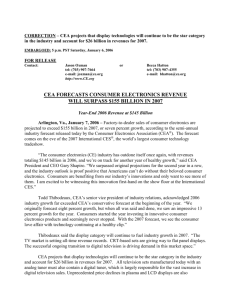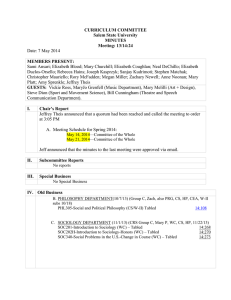Guidelines for CEA Requesting
advertisement

BLOOD SCIENCES DEPARTMENT OF CLINICAL BIOCHEMISTRY Title of Document: Guidelines for CEA Requesting. Q Pulse Reference No: BS/CB/DCB/PROTOCOLS/35 Authoriser: Moya O’Doherty Version NO: 5 Page 1 of 2 GUIDELINES FOR CEA REQUESTING CEA (Carcinoembryonic antigen) is of most value in the following situations a) Pre-operatively in patients with known colorectal carcinoma or with known adenocarcinoma of unknown origin b) Immediately pre-operatively in patients with unidentified abdominal mass c) Monitoring post–operatively for early detection of recurrence (in patients with a positive pre-operative result.) - Occult recurrence in symptomatic patients with no radiological or endoscopic evidence - Monitoring the response to palliative therapy On reporting CEA results consider adding the following coded comment at clinical approval if appropriate CEAR: NB. CEA is not recommended for screening or diagnosis of colorectal cancer. Sensitivity and specificity are both very low as levels are frequently normal in early disease and may be raised in many benign diseases and most types of adenocarcinoma. DIAGNOSIS CEA has poor sensitivity for diagnosis of early colorectal cancer, (3%, 25%, 45%,and 56% in Dukes stage A, B, C and D colorectal cancer respectively, at a cut off of 5 ug/L) Specificity is also poor, as many benign diseases as well as most types of adenocarcinoma can give rise to elevated CEA concentrations e.g.: Liver diseases Cirrhosis Chronic active hepatitis Viral hepatitis Obstructive jaundice Bowel diseases Diverticulitis Inflammatory bowel disease Peptic ulcers Polyps Pancreatitis Other diseases Chronic lung disease Renal failure Malignancy Breast, gastric, lung, medullary thyroid carcinoma, mesothelioma, oesophageal, pancreatic and other cancers. Therefore CEA cannot be recommended for a screening test in unselected individuals and cannot be used alone for diagnosing or ruling out colorectal cancer. BLOOD SCIENCES DEPARTMENT OF CLINICAL BIOCHEMISTRY Title of Document: Guidelines for CEA Requesting. Q Pulse Reference No: BS/CB/DCB/PROTOCOLS/35 Authoriser: Moya O’Doherty Version NO: 5 Page 2 of 2 MONITORING The main application of CEA is in the monitoring of patients with previously diagnosed colorectal cancer. Sensitivity about 80% specificity approximately 70%. Pathology Harmony recommend that CEA should be measured at 2 to 3 monthly intervals following treatment. Further studies are required to determine whether serial marker determinations to detect early recurrence enhance patient outcome. PROGNOSIS High pre or post-operative CEA concentrations have been associated with a worse outcome. CEA may also give prognostic information within the Dukes subgroups. In some studies, preoperative levels of CEA have been shown to be prognostic in patients with Dukes B stage disease. It remains to be shown whether CEA measurement can identify the patients who could benefit from adjuvant chemotherapy. REFERENCES Tumour markers in gastrointestinal cancers - EGTM recommendations. Anticancer Research 1999;19: 2785-2820. National Academy of Clinical Biochemistry laboratory medicine practice guidelines for use of tumor markers in testicular, prostate, colorectal, breast, and ovarian cancers. Sturgeon CM, et al (National Academy of Clinical Biochemistry). Clin Chem. 2008 Dec;54(12):e11-79. Tumour Marker Requesting Guidance for Non Specialists: © Pathology Harmony, June 2012 Version 1.0











